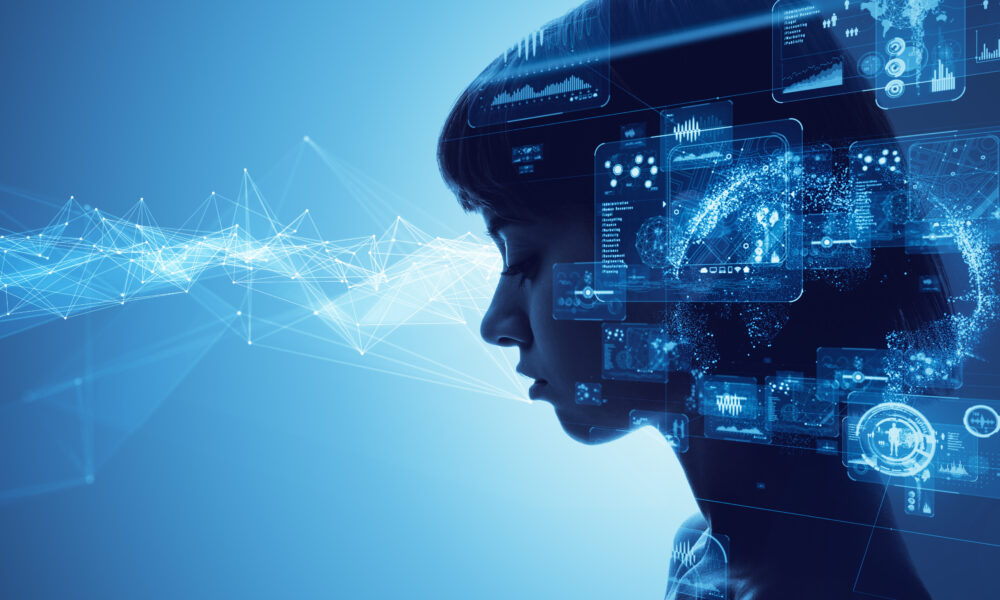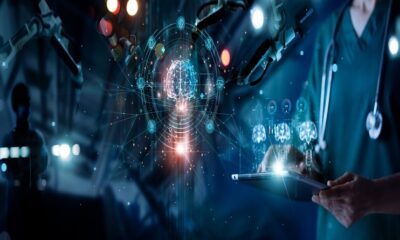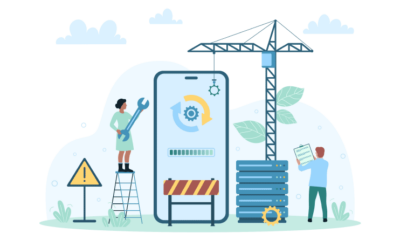
When it comes to artificial intelligence (AI), one of the most hotly debated issues is its capacity to replace human workers. Will AI replace jobs, and if yes, will it cause widespread unemployment? What are the other implications of AI taking over tasks that were traditionally performed by human beings?
Here are 12 statistics backed by research that could provide an answer:
1. 6% of jobs will be fully replaced by 2025
Artificial intelligence (AI) will impact people’s employment prospects in various sectors and geographies. Recent data from the WEF’s Future of Employment Study indicates that 15% of a company’s workforce face the risk of disruption between now and 2025, and 6% of employees are projected to be completely displaced. By 2025, 44% of the skills necessary for individuals to perform their tasks will have completely altered.
2. 10+ million more jobs will be created than lost
By 2025, a shift in the division of work between humans and technology may replace 85 million jobs. At the same time, 97 million new jobs which are better suited to the emerging division of work between people, robots, and algorithms may arise. In other terms, the number of ‘jobs of the future’ created will exceed the number of jobs lost. In contrast to recent years, the WEF finds that job creation is decreasing while job elimination is accelerating, as per research by WEF.
3. Nearly 50% of companies report replacing “some” workers with ChatGPT
ChatGPT has existed since November 2022, and the chatbot powered by artificial intelligence achieved immense popularity immediately after its debut. According to a poll performed by the career counseling website Resumebuilder.com, some organizations in the United States have begun using ChatGPT in lieu of human employees. One 1000 company executives took part in the research, and over half of the US businesses that responded said chatbots had replaced employees in their organizations.
4. Call center operators are the #1 job to be replaced by ChatGPT, followed by education
A research by Princeton University in New Jersey, United States, has identified the top 20 jobs at danger of extinction due to AI technologies such as ChatGPT. Contact center employees were classified as the most vulnerable, which may not come as a surprise given that many organizations already use AI-powered chatbots in this capacity. 14 of the 20 vocations were higher education instructors in various fields, such as History, Geography, Religion, Sociology, as well as English.
5. 40% of unpaid, household work will be replaced by AI by 2033
According to a research undertaken by the University of Oxford, many home tasks will be automated by 2033, which may have substantial effects on gender relations as well as workforce compositions. The job that is anticipated to experience the greatest fall in human input is shopping for groceries, with AI algorithms as well as robots taking over 59% of the work.
Crucially, women in the United Kingdom (where the study took place) perform 70 minutes more housework every day compared to males, which is why AI might have a profound impact. Nonetheless, the majority of physical child care will continue to be performed by people, with only 20% of employment anticipated to be taken over by automation.
6. 52% of experts feel AI will create jobs, while 48% are worried about income inequality
Over half (48%) of experts questioned by Pew Research believed that bots or digital entities would replace a large proportion of blue-collar and white-collar employment. Their fear is that this will exacerbate economic disparity and generate a large base of now-unemployable ex-workers. The remaining 52% believe that automation and AI will generate more employment than they eliminate. This second group of specialists argue that although AI will replace people, human ingenuity will generate new employment, businesses, and ways of earning, similar to the start of the Industrial Revolution.
Both sides are worried that contemporary educational institutions do not effectively prepare students for tomorrow’s labor market.
7. 91% of Americans feel “their” job cannot be replaced by AI
In a study done by Quartz, 90% of respondents believed that as much as 50% of all jobs will be eliminated by automation over the next 5 years, while 91% stated “my career is secure.” A 2016 Pew Research Center research revealed similar results: 65% of respondents believed that technology will take over “most” of the labor presently carried out by humans, while 80% believed that their own employment will still exist in the future!
8. 42% of the jobs lost in the pandemic may be lost to AI and automation permanently
The United States lost over 40 million jobs during the height of the pandemic, and while some have returned, others will probably never reappear. According to one group of economists, 42% of the lost jobs are irretrievably lost. A new article by economists at MIT and Boston University estimates that robots might replace up to 2 million more industrial employees by 2025.
As with the majority of the pandemic, the automation wave will disproportionately affect people of color and low-wage jobs. According to a Time article citing McKinsey, most Black and Latina Americans work as cashiers, food service workers, or customer service representatives, 3 of the 15 jobs most endangered by automation.
9. 80% of workers can expect at least 10% of their work to be influenced or event replaced by AI
New research examined the potential effects of GPT (Generative Pre-trained Transformer) modeling and associated technologies on jobs by evaluating their exposure to GPT capabilities. The results indicate that the implementation of GPTs might impact at least 10% of the work activities of almost 80% of the U.S. workforce, as well as at least 50% of the work duties of approximately 19% of the workforce.
More likely to be “affected” by generative AI are programming and writing abilities. On the contrary, scientific or critical thinking-based occupations and tasks are much less susceptible to change and obsolescence.
10. Younger people, men are more receptive to AI replacing workers
These findings are from a recent study by Boston University’s College of Communication and Ipsos. By a margin of over 30 percentage points, people polled between the ages of 18 and 34 were more favorable to AI replacing human jobs than those aged 55 and older. Respondents aged 35 to 54 fell in-between. Males were over 10 percentage points more amenable versus women — when considering AI replacing workers in these positions. Despite this, three-quarters of respondents from all ages, gender, ethnicity, and economic groups think it is “not a good idea” or “certainly a poor idea” for AI to replace humans in these professions.
11. 40% of AI-related economic growth will be due to productivity increases; the rest from consumption
According to the World Economic Forum, only 40% of the AI-related economic growth in 2030 will originate from an increase in worker productivity, while the remaining 60% will come from consumption. In other words, just under half of the growth would result from employees being more productive or being replaced by AI. People’s use of AI-powered goods, like social networks and streaming services, will account for the remainder of the expansion.
12. 69% of recent college graduates fear becoming rendered irrelevant due to AI in the next few years
Graduate degree holders are most concerned about losing their employment because of the rise of artificial intelligence. In addition to the worry that AI would eliminate employment or be exploited by criminals (51%), poll respondents are worried about the exploitation of AI to disseminate misinformation. According to a recent study, 78% feel that this is going to be the primary AI concern.
Conclusion
AI technology has come a long way, and in many fields, it is now close to mimicking human action with remarkable precision. When it comes to AI replacing jobs, the verdict is still out: some tasks will inevitably change due to automation, while others will simply work differently, and compel humans to learn new skills. The bottom line is that one cannot be complacent, and there’s much work to be done before we are fully prepared for the revolutionary potential of artificial intelligence.








